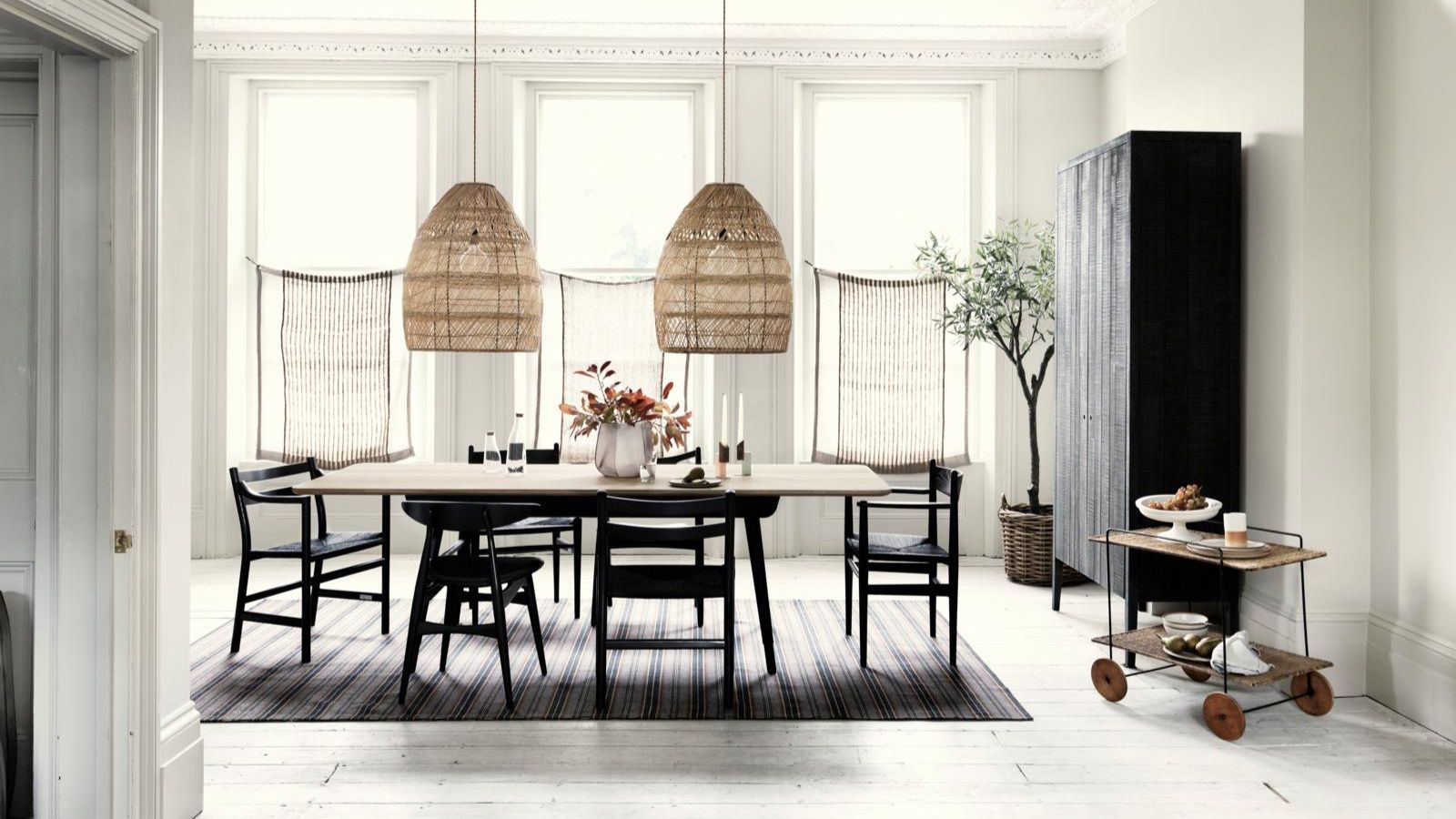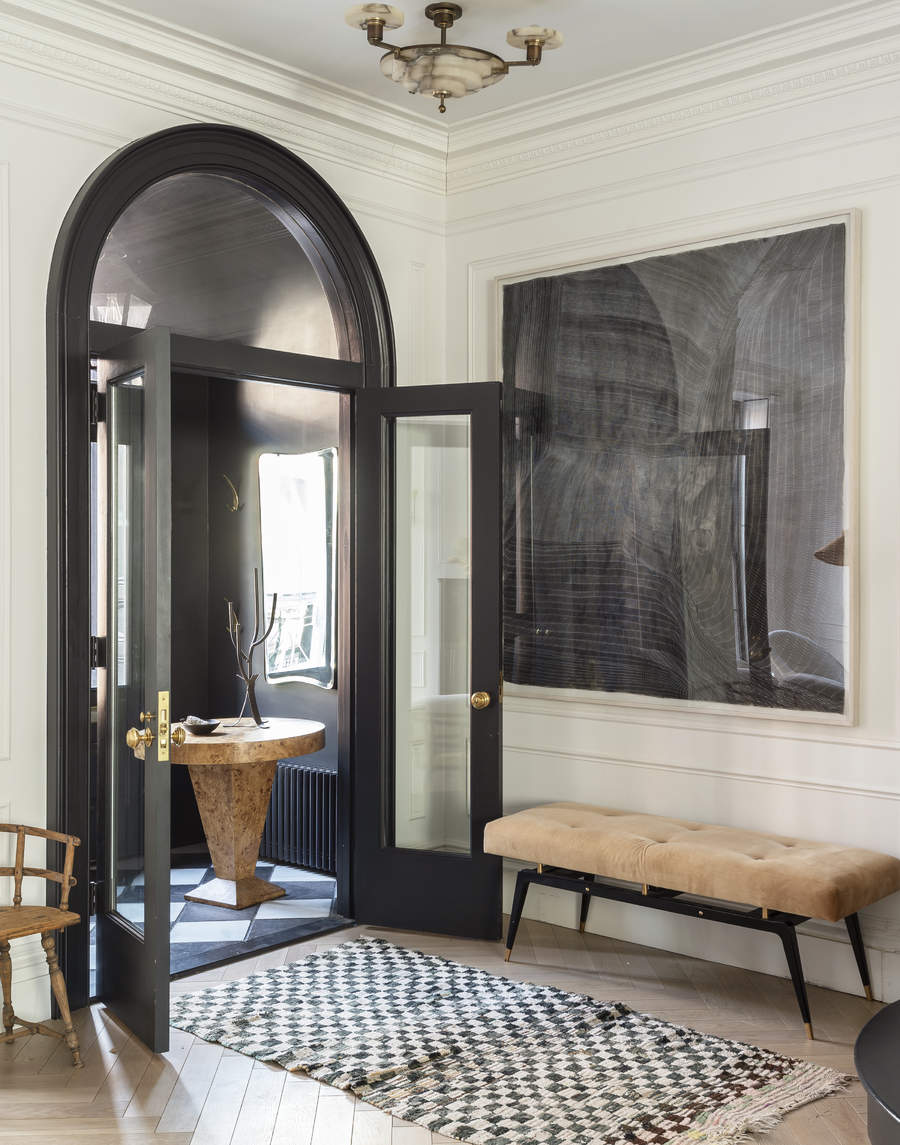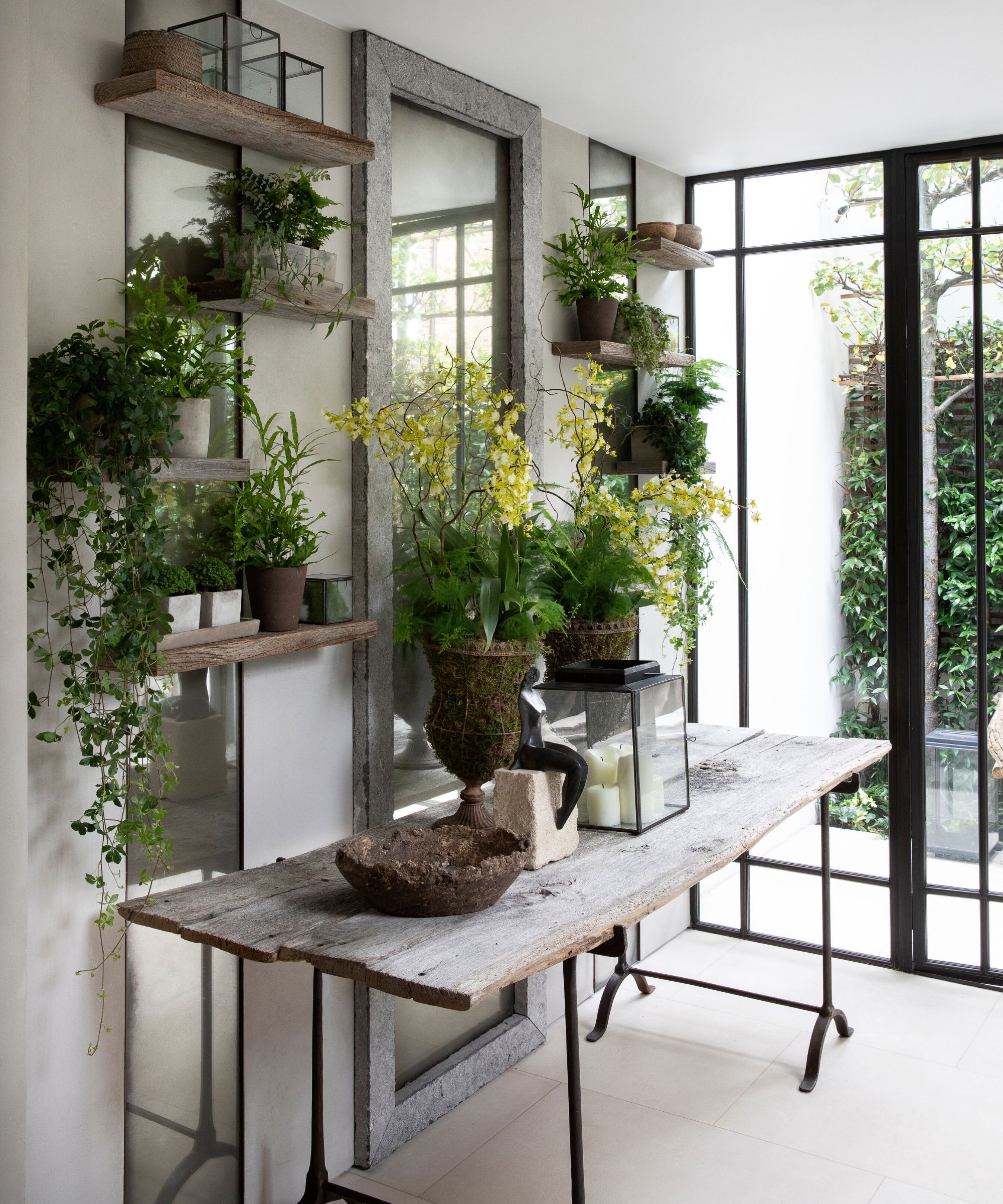
Design expertise in your inbox – from inspiring decorating ideas and beautiful celebrity homes to practical gardening advice and shopping round-ups.
You are now subscribed
Your newsletter sign-up was successful
Want to add more newsletters?

Twice a week
Homes&Gardens
The ultimate interior design resource from the world's leading experts - discover inspiring decorating ideas, color scheming know-how, garden inspiration and shopping expertise.

Once a week
In The Loop from Next In Design
Members of the Next in Design Circle will receive In the Loop, our weekly email filled with trade news, names to know and spotlight moments. Together we’re building a brighter design future.

Twice a week
Cucina
Whether you’re passionate about hosting exquisite dinners, experimenting with culinary trends, or perfecting your kitchen's design with timeless elegance and innovative functionality, this newsletter is here to inspire
Your home is your sanctuary, a place to feel calm, content – for the most part, anyway. If that’s not the case for you, there's a chance your home could be increasing your stress levels without you even realizing.
If you want to be happier at home, you’ll first need to work out where you’re going wrong. Whether it’s lack of light, lack of storage or simply too much ‘stuff’, knowing what’s pushing your buttons means you’re well-placed to organize your home with health and wellbeing in mind going forwards.
To help, we’ve put together a list of the most common stressors we (and the experts) see in people’s homes, and simple ways to rectify them, including easy home organizing ideas and decluttering tips, as well as a few cleaning hacks to avoid!
Ways your home could be increasing your stress levels
While our list is comprehensive, It’s important to remember that everyone has different stress triggers, so take a moment to reflect on your day-to-day feelings and frustrations.
Are you constantly losing things? Take that as a a sign it’s time to declutter your home. Spending too long tidying? Maybe you need to rethink your storage ideas, for example. This will ultimately drive what changes you make, so be sure to give it proper thought.

1. You’re greeted by clutter
Our homes should feel welcoming, so if you notice your stress levels rising as soon as you walk through the door, you’ll need to think about organizing your entryway, pronto.
'Bills to pay, shoes to clean, returns to make… it can feel like we’re returning to a to-do list, rather than a sanctuary', says professional home organizer and clutter whisperer, Star Hansen.
Design expertise in your inbox – from inspiring decorating ideas and beautiful celebrity homes to practical gardening advice and shopping round-ups.
'Taking the time to create effective entryway storage ideas and organizational systems for items in transition will give you peace of mind, whether you’re coming or going. Bonus points for incorporating some pretty décor, too!’.
If you’re organizing a small entryway, consider using a wall hung organizer, from Target, to keep everyday items close to hand – there’s nothing more stressful than looking for keys when you’re in a rush to get out of the door!
2. It's full of stuff you don't love
Often we hold onto things because we think we should, not because we want, like or need them, resulting in unnecessary clutter that’s not just stressful to look at, but stressful to live with, too – even the simplest of tasks become hard work.
‘A calm home is a clutter-free home, so if you’re not feeling the love for items, or they no longer suit your lifestyle, it’s time to get rid. Before you begin the decluttering process, give yourself permission to remove items without guilt; this should make letting go of stuff easier’, says Gabriella Dyson, Head of Solved, Homes & Gardens.
3. It takes ages to clean and tidy
We don’t doubt that a clean house makes you happier, but if you’re spending more time cleaning your home than you are relaxing in it, it’s no surprise your stress levels are high. That’s not to say you give up on neat and tidy surroundings altogether though; instead, adopt smart habits to spend less time cleaning.
‘You don’t have to stop and declutter there and then – especially if you don’t have the time or energy – but even just taking a few minutes to put some things away can help. Keep some spare plastic bins to use as “catch-alls” for any small things lying around, until you can put them back properly’, says Toby Schulz, CEO & Co-founder of Maid2Match.
If you’re struggling to find homes for things, reassess your storage ideas to ensure you’re making best use of the space you have and employ sensible home organizing ideas to make tidying quicker and easier.
4. It doesn’t smell nice
It’s not just aesthetics that affect our moods; the scents in our home can have a significant impact, too. From wet pets and damp coats to lingering drain and cooking smells, unpleasant odors are a part of life, but knowing how to make your home smell nice can help you keep them (and your stress levels) to a minimum, plus makes guests feel more welcome, too.
‘You’d be surprised at how much cleaning with baking soda or some essential oils can do to zap those odors. Crack open a window now and then to let in fresh air and invest in a good air purifier. Toss in a few scented candles (choose a natural one that’s paraffin-free, like Mrs Meyer’s Clean Day Lavender candle, from Target) and you’re on your way to a home that smells as fresh as a daisy’, says Rhonda Wilson, Quality Lead Cleaner at FreshSpace Cleaning.
5. The layout doesn’t work
Have you ever stopped to question your home’s layout? Learning to live with whole house layout mistakes rather than face a potential rebuild may feel like the easier option, but a few simple tweaks may be all it takes to improve the flow (and your stress levels) for the better.
'There’s nothing worse than navigating a poorly designed room day in and day out, so take a step back and think about how the space you have could work better for you. You don’t have to redo everything – even just rearranging furniture or adding in a few shelves can free up floor space’, says Toby.
6. There’s no greenery

You may not be a plant-lover, but bringing the outside in is a quick and easy way to reduce your stress levels – and that’s a fact. Invest in mood-boosting houseplants that are easy to care for such as snake plants, aloe vera and peace lilies. They also purify the air and help with sleep, so are beneficial for physical health, too.
7. There’s not enough light
Living in the dark? A light and bright house is not only sought-after from a design-perspective. As well as increasing your vitamin D and energy levels, exposure to daytime light can also help you sleep better at night, so increasing natural light in your home is well worth a try.
Consider pulling back the curtains across windows and skylights to let in as much light as possible. During the winter months when natural light is limited, consider using full-spectrum light bulbs that mimic natural light, such as this GE sun-filled LED light bulb, from Amazon.
8. There’s DIY tasks outstanding
‘A door handle that needs to be twisted in ‘just the right way’ or a stove burner that only ‘sometimes’ switches on… they might not feel like much, but little annoyances like this can have a cumulative effect on your stress levels.
It’s a constant reminder of problems that need fixing, and the money pit required to do it can start to feel overwhelming as well’, says decluttering expert and minimalist, Veronica Hanson, creator of Nomad Veronica.
If your stress levels are rising in line with your projects, it’s time to whip out your tool box, or hire in the professionals. Taking action will give you a sense of control, while putting things off will only lead to more damage (and expense) further down the line.
9. It doesn’t support healthy life choices
Living a healthy, well-balanced lifestyle is one of the best ways to manage stress, but it’s not always easy to make those positive decisions, particularly if your home isn’t set up for success.
Organizing your home with personal goals in mind, whatever they may be, is the key to good wellbeing’, says professional organizer, Shannon Krause, founder of Tidy Nest.
‘If establishing a regular exercise routine is important to you, put your sneakers, gym attire and workout equipment where you’ll see them as a continuous reminder and keep healthy food at eye level when organizing a fridge. Or if stress management is what you’re striving for, prioritize decluttering, for example”, she says.
FAQs
How can your home affect your mental health?
Each person’s organization and tidiness levels can vary, but if you’re noticing your mood slumping or your stress levels rising when spending time in your home, there’s every chance your surroundings have something to do with it. They can have a significant impact on our mental state, as evidenced by the fact that a messy house can cause depression.
Not only is it draining to look at, but clutter can also interfere with day-to-day tasks, making them much harder without you even realizing. The answer appears simple, but knowing how to declutter when you feel overwhelmed isn’t easy. Our advice would be to start small. Knowing you’re taking steps towards improvement will instantly make you feel better, plus success will spur you on to tackle bigger tasks.
Life can be chaotic enough without our homes adding to the mix, but with just a few simple changes – and a few happy room ideas – we can create spaces to soothe us, rather than stress us.

For 10 years, Tara King worked as a Content Editor in the magazine industry, before leaving to become freelance, covering interior design, wellbeing, craft and homemaking. As well as writing for Ideal Home, Style at Home, Country Homes & Interiors, Tara’s keen eye for styling combined with a passion for creating a happy – and functional – family home has led to a series of organization and cleaning features for H&G.
